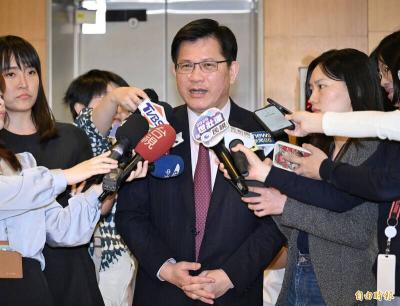The Democratic Progressive Party (DPP) polling center yesterday said that more than 60 percent of Taiwanese think there has been a lack of transparency during talks between China’s Association for Relations Across the Taiwan Strait Chairman Chen Yunlin (陳雲林) and Straits Exchange Foundation Chairman Chiang Pin-kung (江丙坤), despite President Ma Ying-jeou’s (馬英九) call for transparency in cross-strait talks.
More than half of the respondents in the poll said cross-strait agreements on certification and standardization of merchandise would have a negative impact on Taiwan.
Nearly 70 percent supported DPP Chairperson Tsai Ing-wen’s (蔡英文) call to Ma to promise that Taiwan would sign free trade agreements (FTAs) with other countries after signing an economic cooperation framework agreement (ECFA) with China.
Dividing respondents into supporters of the pan-green and pan-blue camps, results indicated that 81.3 percent of pan-green-camp supporters agreed with Tsai’s call, while 65.9 percent of pan-blue supporters also agreed.
“This shows that no matter what their political stance is, everyone thinks Ma should promise that Taiwan would be able to sign FTAs with other countries after signing an ECFA with China,” the DPP statement said.
Also, 71.1 percent of respondents said China was the biggest obstacle to Taiwan’s attempt to sign FTAs with other countries.
The poll was conducted on Tuesday and Wednesday and collected 914 valid samples.

Taiwan would welcome the return of Honduras as a diplomatic ally if its next president decides to make such a move, Minister of Foreign Affairs Lin Chia-lung (林佳龍) said yesterday. “Of course, we would welcome Honduras if they want to restore diplomatic ties with Taiwan after their elections,” Lin said at a meeting of the legislature’s Foreign Affairs and National Defense Committee, when asked to comment on statements made by two of the three Honduran presidential candidates during the presidential campaign in the Central American country. Taiwan is paying close attention to the region as a whole in the wake of a

Chinese Nationalist Party (KMT) Chairman Eric Chu (朱立倫), spokeswoman Yang Chih-yu (楊智伃) and Legislator Hsieh Lung-chieh (謝龍介) would be summoned by police for questioning for leading an illegal assembly on Thursday evening last week, Minister of the Interior Liu Shyh-fang (劉世芳) said today. The three KMT officials led an assembly outside the Taipei City Prosecutors’ Office, a restricted area where public assembly is not allowed, protesting the questioning of several KMT staff and searches of KMT headquarters and offices in a recall petition forgery case. Chu, Yang and Hsieh are all suspected of contravening the Assembly and Parade Act (集會遊行法) by holding

President William Lai (賴清德) has appointed former vice president Chen Chien-jen (陳建仁) to attend the late Pope Francis’ funeral at the Vatican City on Saturday on his behalf, the Ministry of Foreign Affairs said today. The Holy See announced Francis’ funeral would take place on Saturday at 10am in St Peter’s Square. The ministry expressed condolences over Francis’ passing and said that Chen would represent Taiwan at the funeral and offer condolences in person. Taiwan and the Vatican have a long-standing and close diplomatic relationship, the ministry said. Both sides agreed to have Chen represent Taiwan at the funeral, given his Catholic identity and

Taiwan would welcome the return of Honduras as a diplomatic ally if the next president of that country decides to make such a move, Minister of Foreign Affairs Lin Chia-lung (林佳龍) said today. “We would welcome Honduras if they want to restore diplomatic ties with Taiwan after their elections,” Lin said during a legislative hearing. At the same time, Taiwan is paying close attention to the Central American region as a whole, in the wake of a visit there earlier this year by US Secretary of State Marco Rubio, Lin said. Rubio visited Panama, El Salvador, Costa Rica and Guatemala, during which he